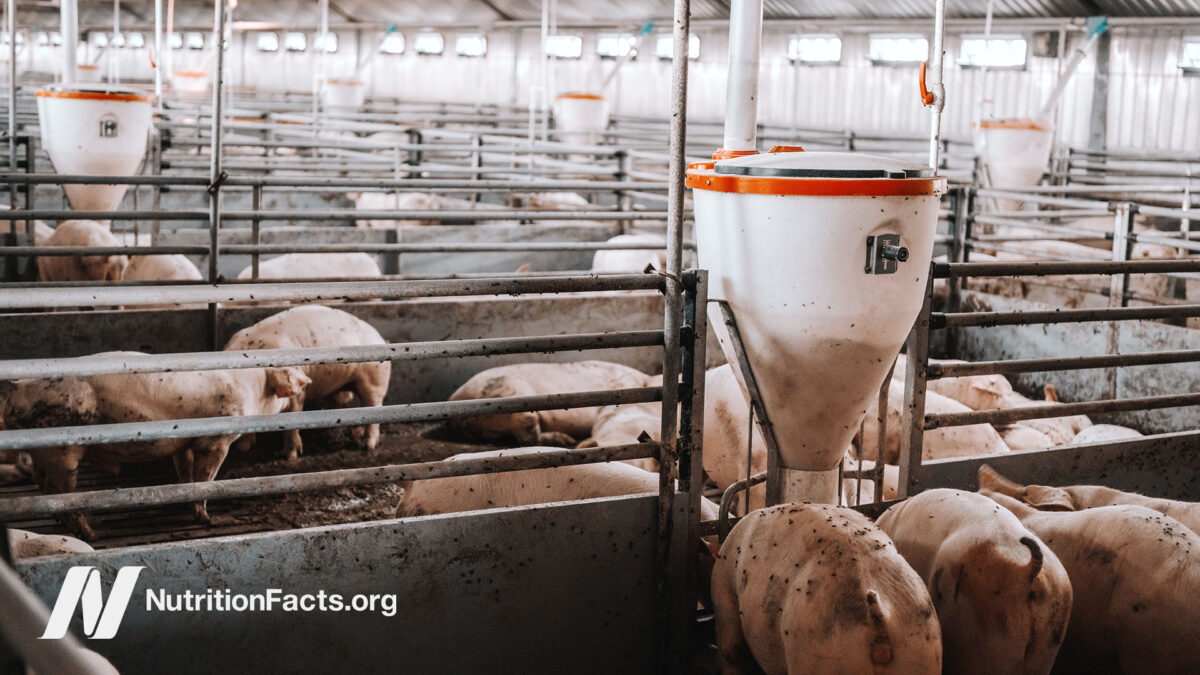Below is an approximation of this video’s audio content. To see any graphs, charts, graphics, images, and quotes to which Dr. Greger may be referring, watch the above video.
In the late 1960s, carbadox, a new feed additive which promoted growth in chicks, was also found to promote growth in pigs. It is now fed to more than 40 percent of young pigs in the United States, not only to increase rate of growth but to control diarrheal disease, too. However, carbadox is also a genotoxic and mutagenic carcinogen in animals.
More than 25 years ago, the European Commission banned the use of carbadox in meat production due to its possible adverse effects on human health. Stating “it is not possible to set a threshold for a genotoxic [DNA-damaging] additive below which” there is no risk to the consumer, since even a small quantity could provoke a tumor-inducing mutation.
Other countries followed. Canada halted its sale more than 20 years ago, and the Food and Agriculture Organization and World Health Organization joint committee on food additives decided there is no acceptable intake amount. So why is a drug banned in many countries still being fed to pigs in the United States?
Well, one reason is that the drug maker has been defending carbadox, sold under the brand name Mecadox, since the U.S. Food and Drug Administration first proposed rescinding its use based on concerns about the persistence of carcinogenic residues in meat. And, no surprise, the National Pork Producers oppose the FDA’s proposal to ban it––likely because, just as the drug company’s marketing brochure says: “Bottom line, Mecadox can help you market more pork” and make them more money. We’re talking about more than $20 million a year, with sales continuing to increase.
The pork industry claims that removing carbadox would inevitably increase use of other antibiotics, and the likelihood of antimicrobial resistance. If it really cared about antibiotic resistance, maybe pork producers would stop feeding millions of pounds of medically important antibiotics to pigs every year in the United States. And carbadox can actually activate dormant viruses that can transfer antibiotic resistant genes among bacteria. This can lead to bacterial whack-a-mole, where using carbadox in pig production may help prevent some bacterial infections, but can also lead to the emergence of bacteria that are resistant to antibiotics used in human medicine.
There’s a stalemate at the FDA, as the drug maker keeps battling to continue selling carbadox, and the FDA keeps conceding to its demands. As of November 2023, there seemed to be some hope of the FDA withdrawing carbadox from the market, but we are still waiting on the final word. In the meantime, carbadox, with its 97.9 percent likelihood of causing cancer in humans, is still banned in many countries around the world, and it’s still being fed to pigs bound for the supermarket in the United States.
Please consider volunteering to help out on the site.


